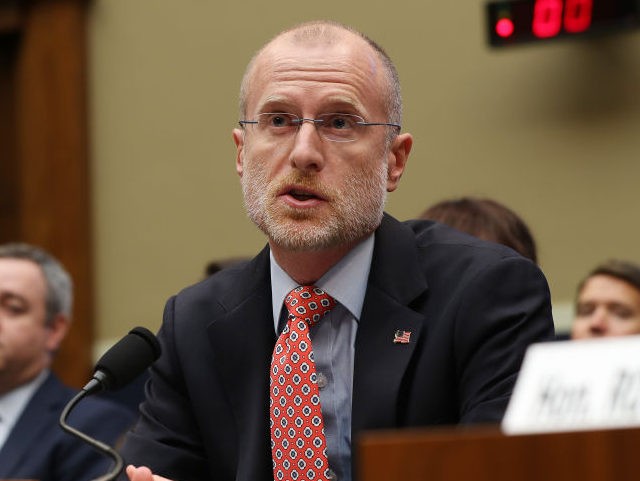Federal Communications Commission (FCC) Commissioner Brendan Carr proposed Monday to end big tech’s “free ride” on internet infrastructure and reduce taxes on Americans.
Carr wrote in an op-ed at Newsweek that Americans have become increasingly reliant on access to the internet; however, the country still relies on an outdated and decreasing revenue source to pay for the country’s broadband investment.
The FCC taxes wireless and wireline telephone services through monthly bills to contribute to the Universal Service Fund (USF) to support broadband investment in rural areas to close the “digital divide.”
Since the primary means of communicating has moved from the telephone to the Internet, telephone revenue has dropped from $80 billion 20 years ago to $30 billion. Carr said the country should not rely on an outdated source of revenue to expand Americans’ access to the internet.
“This is like taxing horseshoes to pay for highways,” Carr remarked.
The Republican FCC commissioner said that big tech companies have benefitted from Americans’ increasing reliance on the Internet while “skipping out” on the billions of dollars of broadband investment for Americans to use their services. Carr noted that Netflix, YouTube, Amazon Prime, Disney+, and Microsoft account for three-quarters of all traffic on rural broadband networks. Further, the study Carr cited also found that 77-94 percent of all networks relate to adding more capacity to help Americans use those services.
“Ordinary Americans, not Big Tech, have been footing the bill for those costs,” Carr said.
Carr said the shifting the cost of investing in rural broadband onto big tech companies would relieve American consumers’ tax burden and end “corporate welfare.” He explained:
Yet Big Tech derives tremendous value from these high-speed networks. Indeed, Facebook, Apple, Amazon, Netflix and Google generated nearly $1 trillion in revenues in 2020 alone—an almost 20 percent increase over the prior year. It would take just 0.009 percent of those revenues to eliminate entirely the unsustainable 30 percent tax that currently hits consumers on their monthly bills.
Ending this corporate welfare is more than fair. It is consistent with the network compact that has prevailed since the earliest days of the Ma Bell telephone network. Historically, the businesses that derived the greatest benefit from a communications network paid the lion’s share of the costs. For instance, the fees that businesses paid for local and long-distance calls provided the key funding stream to build the traditional telephone network.
Carr called on Congress and the FCC to look into his proposal to rebalance the cost of investing in rural broadband.
“Ending Big Tech’s free ride on the internet would represent a long-overdue return to the historic compact under which the businesses that benefit from a network pay their fair share for it. It would lower monthly bills for millions of Americans,” Carr said. “And it would secure a funding model that can support the long-term investments needed to close the digital divide—a result that will allow businesses and consumers alike to prosper.”
Sean Moran is a congressional reporter for Breitbart News. Follow him on Twitter @SeanMoran3.

COMMENTS
Please let us know if you're having issues with commenting.